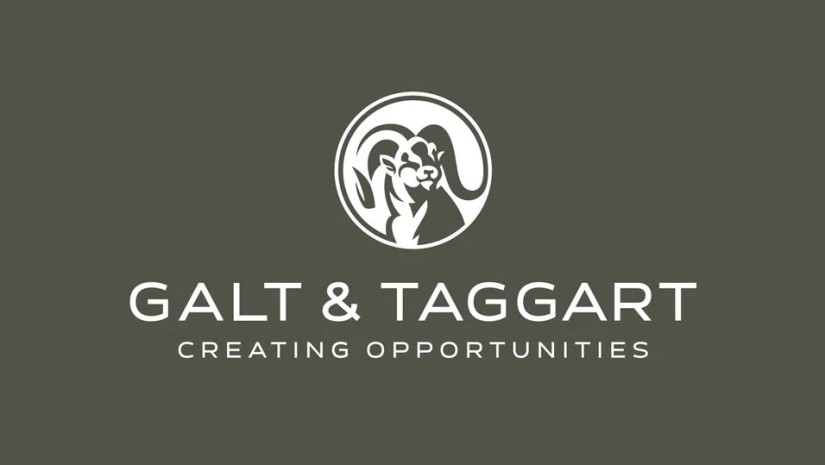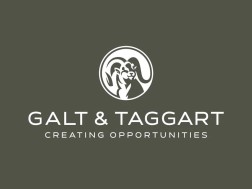Galt & Taggart published Global Markets Weekly Update. According to the repot,
USA
Corporate news:
NVidia Quarterly Results:
Nvidia experienced a significant boost in revenue and earnings for the July quarter, with figures surpassing $30 billion and adjusted earnings of 68 cents per share, reflecting the strong demand for its AI data center chips. Despite these impressive numbers, investors were concerned about a slowdown in growth compared to the previous year, with revenue increasing 15% from the fiscal first quarter as opposed to 88% a year earlier. Nvidia’s next-generation Blackwell GPU demonstrated up to four times the performance of its current H100 GPU, and the company plans to significantly ramp up production in the fourth quarter, expecting substantial revenue from these chips. Additionally, Nvidia's operating margin slightly narrowed to 62% but remains higher than last year’s 50%. The company’s board approved a $50 billion stock buyback plan, with $7.5 billion remaining in the current buyback program.
Despite the strong results and substantial buyback announcement, Nvidia’s stock fell 7% in after-hours trading, indicating that the market expected even more. The decline in Nvidia's stock was somewhat moderated later. During the week NVDIA stock fell by 8.59%.
SMCI:
Super Micro Computer, Inc., a leading American IT company based in San Jose, California, has been a key player in producing high-performance servers and related technology since 1993, serving markets like AI, cloud computing, and 5G. Despite its success, the company is under scrutiny following a 19% stock drop after delaying its annual 10-K report, coinciding with a critical Hindenburg Research report. The report raised concerns about financial practices, governance, and alleged violations of U.S. export bans. Super Micro has also lost major customers like Nvidia and Tesla due to quality issues and faces significant risks related to accounting, regulatory compliance, and customer trust. The company is set to present at the Deutsche Bank 2024 Technology Conference amid growing scrutiny. During the week SMCI stock fell by 28.05%.
Warren Buffett’s Berkshire Hathaway joins the $1 Trillion Club:
Berkshire Hathaway has reached a significant milestone by surpassing a $1 trillion market value, making it the eighth U.S. company to join the $1 trillion club. The other seven companies in this elite group, known as the Magnificent Seven, are Nvidia, Meta Platforms, Alphabet, Apple, Microsoft, Amazon, and Tesla, with Saudi Arabian Oil Co. being the only non-American firm to achieve this status. On Wednesday, Berkshire’s Class B shares closed up 0.9% at $464.59 and have risen 30.3% this year, marking their best performance since 2013. Warren
Buffett, who has led the company since 1965, has seen Berkshire grow from a market value of about $25 million to the largest U.S. company by shareholder equity, valued at $601 billion. His 15% stake in Berkshire is now worth approximately $145 billion. During the week BRK-B stock jumped by 4.53%.
Next:
Wall Street faces a holiday-shortened week due to Labor Day on Monday, but economic data will keep investors engaged. Key reports include the Job Openings and Labor Turnover Survey (JOLTS) on Wednesday, ADP’s private employment report on Thursday, and the crucial August nonfarm payrolls report on Friday. The latter is particularly significant as the July payrolls data triggered growth concerns and contributed to "Black Monday 2024." This week's jobs data will be closely watched for insights into the Federal Reserve's potential interest rate cut in September. Additionally, earnings announcements from notable companies like cloud security firm Zscaler, retailers DICK'S Sporting Goods and Dollar Tree, and chipmaker Broadcom will provide further market insights.
Earnings spotlight: Tuesday, September 3 - Zscaler (ZS), GitLab (GTLB), and PagerDuty (PD).
Earnings spotlight: Wednesday, September 4 - Hewlett Packard Enterprise (HPE), Dollar Tree (DLTR), DICK'S Sporting Goods (DKS), Casey's General Stores (CASY), C3.ai (AI) and ChargePoint Holdings (CHPT).
Earnings spotlight: Thursday, September 5 - Broadcom (AVGO), DocuSign (DOCU), Samsara (IOT), NIO (NIO), Rent the Runway (RENT) and Planet Labs (PL).
IPO watch:
Powell Max Limited (PMAX) is the only IPO expected to price next week and begin to trade. The Hong Kong-based financial communications service firm plans to raise as much as $9.9 million by offering 1.65 million shares at a price range of $4 to $6. At the midpoint of the proposed range, Powell Max would have a market value of $71 million. The IPO lockup period expires for blocks of shares of Lucas GC Limited (LGCL).
Europe
Eurozone inflation drops close to target; some policymakers still cautious
In local currency terms, the pan-European STOXX Europe 600 Index gained 1.34%, rising to a record high. The benchmark extended a rally for a fourth week as sharply slower inflation supported the case for the European Central Bank (ECB) to cut interest rates in September.
Among major European stock indexes, Germany’s DAX reached a fresh peak, climbing 1.47%, while Italy’s FTSE MIB added 2.15%, and France’s CAC 40 Index tacked on 0.71%. The UK’s FTSE 100 Index ended 0.59% higher.
Headline annual inflation in the eurozone decelerated to 2.2% in August from 2.6% in July—the lowest level in three years and a shade above the ECB’s 2% target. Higher energy costs a year ago were partly responsible for the decline. Core inflation, which excludes volatile
food and energy costs, ticked down to 2.8% from 2.9%. However, services inflation—a data point that is closely watched by policymakers—quickened to 4.2% from 4.0%.
Some ECB policymakers remained cautious about lowering borrowing costs anytime soon. Dutch central bank governor Klaas Knot said there was scope to gradually ease policy if inflation continued to fall but emphasized that incoming data points would also need to be supportive for rates to be cut in September. Executive Board member Isabel Schnabel and Governing Council members Robert Holzmann and Joachim Nagel cautioned against lowering interest rates too early, highlighting the persistence of underlying inflation pressures.
Eurozone economic sentiment rises, but German companies downbeat
The economic sentiment indicator for the euro area rose to 96.6 in August from a revised 96 the month before. This latest monthly reading was the strongest in more than a year. Confidence improved in the services sector, but consumers were gloomier.
In contrast, the Ifo Institute’s business climate index for Germany dropped more than expected to 86.6 in August, the lowest level since February, as companies grew more pessimistic. Ifo President Clemens Fuest said: “The German economy is increasingly falling into crisis.”
UK housing market strengthens
The Bank of England said net mortgage approvals in the UK rose to 61,985 in July, the highest level since September 2022. Net lending on mortgages grew more than expected to GBP 2.7 billion, the highest since November 2022. Meanwhile, the Nationwide Building Society’s house price index rose an annual 2.4% in August, up from 2.1% in July.
Japan
Tokyo inflation rises more than expected
Wrapping up a volatile month, Japan’s stock markets rose over the week, with the Nikkei 225 Index gaining 0.7% and the broader TOPIX Index up 1.0%. By the end of August, both indexes had recovered most of the ground lost in the steep sell-off around the start of the month,
which followed the Bank of Japan’s (BoJ’s) late-July interest rate hike and was largely driven by renewed U.S. growth fears and the rapid unwinding of the yen carry trade.
In the fixed income markets, the yield on the 10-year Japanese government bond was broadly unchanged on the week at about 0.9%. In foreign exchange, the yen weakened to the high end of the JPY 144 against the USD range from JPY 144.35 at the end of the previous week. The Japanese currency strengthened for the second consecutive month in August on the divergent monetary policy outlooks for Japan and the U.S., weighing on the earnings prospects of Japan’s export-oriented firms.
A hawkish outlook on the BoJ’s monetary policy was reinforced by the latest inflation data. The Tokyo-area core consumer price index (CPI), a leading indicator of nationwide trends, rose 2.4% year on year in August, versus consensus 2.2% and the highest since March. BoJ Governor Kazuo Ueda recently reiterated that the central bank would continue to normalize its monetary policy as it gains confidence in the economy achieving 2% inflation in a stable manner, indicating willingness to hike rates again if its projections for the economy and prices materialize.
In the latest communication from the BoJ, Deputy Governor Ryozo Himino echoed Ueda’s comments, adding that the baseline scenario for the future remains that growth and inflation will develop in line with the central bank’s outlook. Of course, this likelihood can be affected by financial markets at home and abroad, which remain unstable and must be watched with an extremely high sense of urgency.
China
Chinese stocks fell as a series of corporate earnings reports missed expectations and dampened buying sentiment. The Shanghai Composite Index lost 0.43% while the blue chip CSI 300 fell 0.17%. In Hong Kong, the benchmark Hang Seng Index gained 2.14%, according to FactSet.
Several China economists reduced their 2024 growth forecasts as the country grapples with a prolonged property sector slump and weak domestic demand. Retail sales, a key consumption indicator, are estimated to grow 4% this year, down from estimates of 4.5% in July, according to a Bloomberg survey of economists. Fixed asset investment is expected to grow 4.2%, lower than the prior month’s projection of 4.4%. Economists also trimmed their consumer price index forecast to 0.5% from 0.6%. The weaker outlook for China raised the prospect that the country may miss its official growth target of about 5% this year. It also raised expectations that the central bank may further loosen policy in the near term, including additional interest rate cuts and a reduction of the reserve requirement ratio for domestic lenders.
On the monetary policy front, the People’s Bank of China injected RMB 300 billion into the banking system via its medium-term lending facility and left the lending rate unchanged at 2.3%. The central bank also supplemented the banking system with RMB 471 billion via its short-term seven-day reverse repos and kept the lending rate at 1.7%.





















